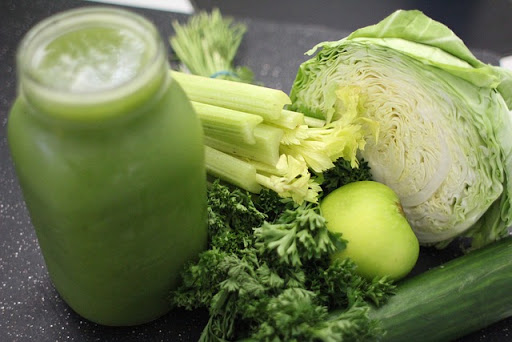4 Weight Loss Trends to Avoid
In today’s world, platforms such as TikTok are full of must-jump-on trends; and those include new ways of losing weight. But the truth is that health-related misinformation can be dangerous. There’s nothing wrong with giving something new a go, but when it comes to weight loss, it’s important not to fall for trends that could do more harm than good.
But what if your current weight loss journey isn’t going as you hoped? How can you lose weight safely without being tempted by get-thin-quick promises? In this post, we explore 4 of the most common weight loss trends you should avoid, and offer some healthy alternatives to shedding a few pounds.
Why are some weight loss trends dangerous?
Weight loss ‘trends’ are popular tips, tricks and diet hacks that claim to help you lose weight — often very quickly. The trouble is, when these trends emerge and more people jump on the bandwagon, they often don’t do any research on the actual health benefits of these methods. The other problem, of course, is that there are often very few health benefits at all.
Healthy weight loss should be sustainable, but some of these fads — such as bikini diets and extremely low-calorie plans — are unlikely to deliver long-term results, and they can even lead to health complications.
The risks of fad diets include:
- Developing a bad relationship with food
- Not receiving enough nutrition
- Higher risk of developing an eating disorder
- Becoming obsessed with eating in a particular way
- Hair loss
- Low energy
Most weight loss fads shouldn’t be followed on a long-term basis — they’re unlikely to actually help you lose weight, and more importantly, it’s not worth putting yourself at risk of further complications.
Which weight loss trends should you avoid?
1. One-food diets
Who wants to eat one food for breakfast, lunch, and dinner? One-food diets (or mono diets) are incredibly boring and you won’t get all of the nutrients you need from one single food. Some of the most famous mono diets include the cabbage soup diet, egg diet, or grapefruit diet — three options that aren’t likely to be beneficial (or particularly appetizing) for anyone.
You may lose weight simply because your calorie intake is so low, but you’ll also be severely lacking in other areas. You’ll start to feel weak and be at higher risk of developing several health issues. Food is there to be enjoyed, so don’t restrict yourself to this extreme level!
2. Eliminating food groups
Eliminating whole food groups from your diet can cause you to connect food with fear or guilt. For instance, the ketogenic diet calls for drastically reducing carbohydrate intake and substituting fat for it. Your body enters a metabolic state known as ketosis as a result of the reduced carb intake.
However, carbs are a very important part of your diet, especially if you’re weight training or regularly performing other forms of exercise. Carbs help you stay energized so you can get the very best out of your workouts, and even if you’re not a gym-goer, you need energy to get you through the day.
3. Taking laxatives
Laxatives are designed to help with conditions such as constipation, not to aid weight loss. Unfortunately, many weight loss trends promote the use of laxatives, but you may not realize that some slimming teas contain a laxative that can cause cramping, nausea, and even impact the effectiveness of oral contraception.
Water loss from laxative use is temporary, and is not the same as losing body fat — you’ll only see short-term results, if any at all. If you enjoy tea, simply swap your sugary breakfast tea for a fruit alternative — but don’t use it as the main component of your diet.
4. Juice-only diets
Making your own fruit juices and smoothies can be a great way of introducing more fruit and vegetables into your diet, but juicing alone is not a way to lose weight. While these juices can provide vitamins, minerals and antioxidants, you’re going to be extremely undernourished if you’re using them as meal replacements.
While some promote the benefits of ‘cleansing’ your body with fruit juice, fruit juice alone isn’t going to help you lose weight healthily or sustainably. Plus, if you’re making smoothies with a base of pre-made fruit juice, you could end up with a sugar-packed drink without even realizing it.
How can I lose weight healthily?
If you hear about a fad diet that promises rapid weight loss, it’s probably too good to be true, and there’s a chance it may be unsafe. Experts at The Independent Pharmacy suggest that making realistic changes to your diet and levels of physical activity will help you achieve the best results, and if you’re still struggling, there is additional support available (from your GP) to safely support your weight loss journey.
Eat a balanced diet that isn’t restrictive
Eating a balanced diet is all about making healthy choices and enjoying a variety of foods in moderation. There’s no need to completely cut out the foods you love. Calorie counting can help you stay focused on your calorie intake goals, but you shouldn’t obsess too much over calories — we require a healthy amount of them for energy, after all.
By eating in a way that’s not restrictive, you can still enjoy your Friday night pizza while also eating more fruits and vegetables. You’ll find having a balanced diet is much easier to sustain in the long run, and with a little bit of planning and creativity, eating a varied diet can be an exciting (and delicious) journey towards better health!
Start moving your body more
Diet and exercise go together naturally. Moving your body more can help you burn more calories and promote better wellness. Don’t feel pressured to start going on 5k runs when you first start exercising, though — you’ll find it much more enjoyable taking it steady and figuring out what kind of exercise is suited to your fitness levels and preferences.
Even going for a short walk every morning is a great place to start. Grab your water, put your headphones on, and get your steps in. Plus, there are plenty of home workout channels on YouTube too, so if you need to fit exercise around work or you don’t have a gym membership, there’s no excuse!
Don’t expect to lose weight every week
Weight loss is likely to fluctuate from week to week, but that doesn’t necessarily mean you haven’t put enough effort in — so don’t be hard on yourself. It’s normal to experience fluctuations in your weight. The key is to stay committed to making healthy choices and building sustainable habits that will support your long-term goals.
Remember, the scale is just one way to track progress, and it’s not always the most accurate one. So, don’t get caught up in the numbers game, and don’t be too hard on yourself if the scale doesn’t budge as much as you’d like. Instead, pay attention to how your clothes fit, how you feel in your body, and the positive changes you’re making in your lifestyle. Trust the process, stay motivated, and celebrate every small win along the way!
Are you ready to lose weight safely? Avoid potentially dangerous weight loss trends and make healthier choices to become a happier, fitter version of you and reach your goals.
Share this content:














Post Comment